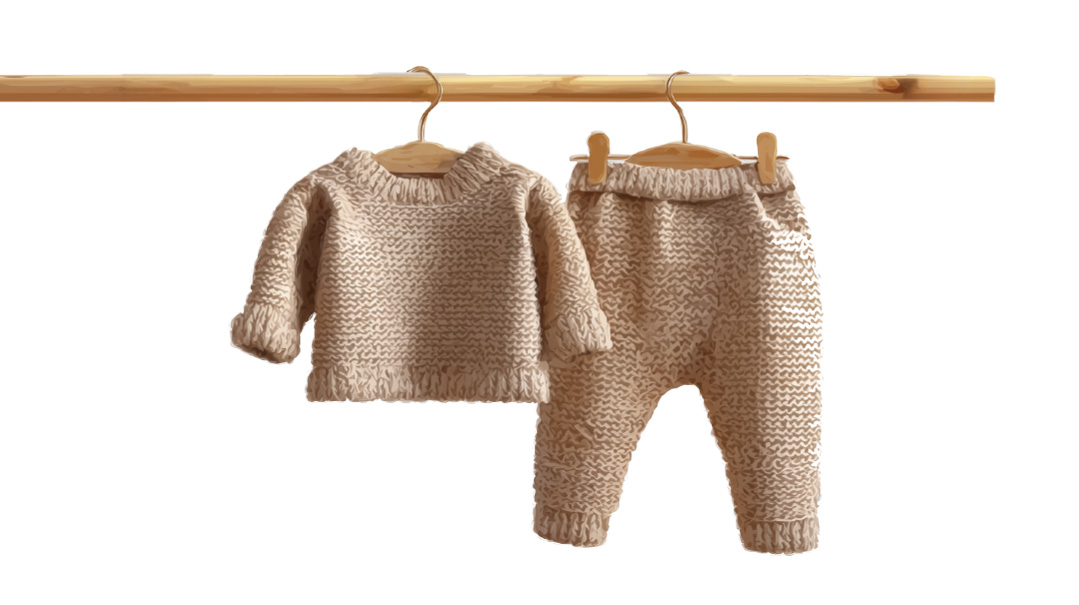The Penthouse — A Novelette: Part 1 of 3
| December 9, 2020“Like why is this second-rate living? It’s three beautiful bedrooms, a great living room, a stunning porch…"

December 1999
Chavi walks past the watercooler, past the coffee tray, to the photocopier at the end of the room. The printout is speckled from years of being photocopied; perhaps somewhere in the country the original document does exist. But time-honored custom has it that thousands of dollars are signed away every year on speckled paper, and Chavi is just weeks away from the deadline.
Ronit runs black nails through her hair. “Mah zeh? You’re moving?” She looks down at the papers hanging limply from Chavi’s hand.
“No.” Chavi’s smile is polite. “Just renewing my contract.”
Ronit’s sharp eyes grow round. “Ima'le! $750 for your apartment? Crazy!”
Chavi shrugs. “I know, it’s expensive, but I want to be in Yerushalayim.”
“B’seder,” Ronit intones slowly, as if explaining something to a two-year-old. “Yes, Yerushalayim. But Ramot, Ramat Eshkol… That’s also Yerushalayim, no?” She gives Chavi a shove that’s somewhere between authoritative and playful.
Chavi goes back to her desk. Some things are too complicated to explain. Like why an American who grew up in a three-story house would choose two undersize bedrooms, a bathroom from the 1960s, and a sponja hole in the middle of the living room. Could Ronit ever understand a life informed by the huge tome her husband carries under his arm, and the need he has to be near an aging building where voices swell in timeless chorus?
Yet, when Daddy calls her later that night and tells her she should look for something bigger, you know, with the impending news, something niggles. Maybe he’s right.
Chana Miriam is in a three-bedroom on Sorotzkin, with a panoramic view through her sliding glass doors. And Ita is her neighbor in Ezras Torah, one building over, accordion door in her living room partitioning off her baby’s bedroom. But Chana Miriam is fully supported, and Ita is unspoiled, almost needless. Chavi is neither.
And neither of them has a widowed father who comes to visit four times a year.
Where exactly would she go? Arzei, Maalot Dafna, Sanhedria Murchevet — the rent keeps on jumping in all the frum neighborhoods.
Ramat Eshkol? It’s a joke. She went there once in seminary to pick up a package Aunt Vivian had sent (feeling bad that no one would send packages), and all she remembered were dogs and dark buildings and quiet parking lots with 50 entrances at the same address. It didn’t feel like the Yerushalayim she’d grown to love.
She usually pays her bills at the tiny post office in Har Hotzvim right near work. Today something pulls her in another direction, up Sderot Eshkol. Just to see. She walks, past the sprawling buildings, the whoosh of buses, all the way to Paran.
Another world. Banks, cafés, a newsstand. Old men in straw hats, Filipino aides, teenagers on skateboards. She’s stumbled into another existence, one of quiet buildings and manicured lawns, far away from the crowded laundry lines and ancient holiness that surround her back in Ezras Torah.
Chavi heads past the row of stores — a bakery, a florist, a fast-food joint that smells like cumin and makes her stomach lurch — then sees the line snaking out of the bank where a guard stands, looking bored. A number of notices are taped on a cement wall.
EREV CHAZZANUT AT THE GREAT SYNAGOGUE
MATH TUTOR FOR BAGRUYOT EXAMS
FOR SALE: 1995 MITSUBISHI
The nondescript paper in the corner is the one that makes her heart jump.
TIVUCH ESHKOL: 3 YEARS EXPERIENCE IN YOUR NEIGHBORHOOD. GET THE SPACE YOU NEED!
She pulls off a precut strip. I do need space. My father can’t share a room with the baby.
Three weeks later, she shakily signs a lease for a three-bedroom apartment.
“Gosh, the stairs! I don’t know how you do this, especially in your ninth month!” Ita is struggling to balance carefully wrapped pans.
“Ita, you’re the best. I’m so excited to get supper!” Chavi takes the pans and puts them down on a small stretch of counter.
“Only one sink?” Ita peers at the scratched porcelain.
“Yeah. A pain, but whatever.”
They walk into the sun-drenched living room. Chavi pulls open a tris to the porch and they step outside to a view of rugged slope with shimmering buildings in the distance. “See, that’s Ramot.”
“Wow, stunning.” Ita walks around the apartment. “And hey, three bedrooms!” She pokes her head into the last one. “What in the world — pictures of cats?”
“It’s the baal dirah’s. Or however you call a lady. She moved back to Boston but kept some things here.”
“Oh, that’s funny. Well, please don’t start liking cats even if you live in Ramat Eshkol, okay?”
Chavi laughs.
Professor Har-Even sits in his gray woolen sweater, presiding over the vaad bayit meeting.
“Firstly, welcome to Chava Bernstein, now in Jeannie Berglass’s apartment on the fourth floor.” He nods chivalrously. Only Mrs. Garbian, eyes crinkling with warmth, pats her hand. The other ladies eye her warily. Ofer is already asleep, his chin resting on a blue Puma T-shirt. The professor continues about the weighty topic of heat turning on at four or four fifteen as if he were lecturing at Hebrew U.
Chavi looks around the table.
No more Mrs. Perkovsky sending over techinah every Friday night. No more girls playing jump rope in the lobby. No more men with scraggly beards waiting outside Rav Veitzner’s apartment during sh’eilos hours. And no more young Americans like her in snoods and black A-line skirts.
Welcome, Chava Bernstein. Welcome to Ramat Eshkol.
April 2000
Chavi is rocking the brand-new navy Peg-Perego, a gift from Dovid’s parents who are too elderly to travel. Only her father has come for the simchah, and she arranges three settings at the small kitchen table. The dining room is set for the shalom zachar, with a huge peanut chew centerpiece from Ita, a few offerings from friends — not neighbors — and some cookies from her freezer.
Mrs. Garbian is upset at her for working so hard after birth — You should be resting and getting more help! Be’emet, motek. But Chavi doesn’t know it any other way; she is her father’s daughter.
The men push the door open.
“Fine people I met in shul.” Daddy smiles. “And I shared an interesting vort with Rabbi Veitzner. Very intelligent fellow.”
He doesn’t realize that walking 15 minutes to shul is far. Back in Queens, that’s normal. It’s only after the quick seudah, when the men fill her dining room, and her friends squeeze themselves around her tiny kitchen table, that she’s reminded just how foreign her neighborhood really is.
“Soooo weird to see cars on Shabbos! I feel like I stepped into another planet!” Miriam covers her eyes.
“I know!” Chana Rivky’s voice rises. “I was like what, where am I?”
The baby whimpers, and Ita, experienced mother already, jiggles his stroller. “My husband would never let me live here. But you do have space.”
“Well,” Chavi takes her baby and half smiles, “I’ll have you know that this apartment is high-end living.” Her eyes flutter dramatically. “It’s actually, uh, a penthouse.”
Ita laughs. “Good one.”
Chana Rivky nods. “One way to look at it. But how are you going to manage those stairs with the stroller?”
“Good question. And my neighbors already warned me not to leave my stroller in the lobby. I don’t know, I guess I’ll bump?”
October 2000
They’re a proud pair, walking down Yam Suf, pushing the stroller around the metal barricades that mark where Ramat Eshkol ends and Sanhedria begins — where cars don’t drive on Shabbos and warmth surrounds them from the windows above.
Looking up, the windows are like rows of identical pictures, framing seforim shranks and fluorescent lights. They amble slowly in the Friday night breeze. She knows that soon enough, the stroll will end, they’ll cross the barricades again and the blue glare of a screen will greet her from Hadas’s window.
But they’ve made the decision, and there’s no point in dwelling on what could have been. And as she watches the night air ruffle Baruch’s blanket, she knows she is blessed. Blessed to be living in Yerushalayim — it is Yerushalayim, isn’t it?
Blessed to have a husband who’s serious about what he’s doing. Even if he’s not going for semichah like Ita’s husband, even if he’s not saying chaburos in an exclusive kollel or any of the other pursuits her friends have mentioned in all innocence. But he goes to learn each day with a spring in his step, always seems to be looking over seforim as he downs his quick breakfast every morning.
Blessed to have a job that actually pays — a real job, not like Ita who sells peanut chews, or Chana Rivky who tutors in Har Nof and spends over an hour on the bus each day.
And blessed to have a sweet, sweet little baby.
They turn into their building and walk up the stairs quietly, Dovid holding the stroller so as not to disturb neighbors with the noise of bumping. Strains of Bach float from the professor’s apartment.
They enter their warm living room, where candles dance in the corner and the smell of cholent wafts from her kitchen. Chavi flops down onto the worn cream couch.
“Sometimes I think we’re crazy. Like, were we too rash about moving here?”
Dovid loosens his tie and sits back in the worn tweed armchair. “Rash? I think we were brave. Realistic.”
“We were, no?” Her face lightens a bit. “Then I’m going to stop feeling bad for myself. Yes, it’s not fun living so out of it, and the steps are a pain. But when my friends came for the shalom zachar I called it a penthouse. And you know — maybe it’s not even a joke.” She shakes her head.
“Like why is this second-rate living? It’s three beautiful bedrooms, a great living room, a stunning porch… so it’s not Sorotzkin or Ezras Torah. So what! We live in a penthouse, like those fancy people in Rechavia.”
“A penthouse…” Dovid pauses. “Not bad.”
Professor Har-Even knocks on her door one night as she’s taking Baruch out of the bath. She throws a towel around him and peers through the peephole. She recognizes the rigid posture and the gray woolen sweater.
“I’m sorry, I see you are occupied.” He smiles stiffly. “I’m just requesting to keep your baby a little quieter. The crying disturbs me.”
She smiles, tight-lipped, “Yes, I’m sorry,” and closes the door.
Gosh, the bath took all of six minutes. Seriously!
She thinks of her apartment in Ezras Torah, the nonstop noise, the sounds of kids, of music, of the elevator rattling to a halt at each floor.
She misses it, the richness of the people around her. But here, there’s old Mrs. Garbian next door, who helped her with those first few baths. Who understood that she didn’t have a mother, and who came every afternoon “to check on the new mother,” holding glass plates of dates stuffed with walnuts.
She sits on the couch cuddling Baruch in a fuzzy Children’s Place sleeper, and picks up the frum Hebrew newspaper. It comes free in the mailboxes every Tuesday — but only to the fully chareidi neighborhoods, of course. Not Ramat Eshkol. Dovid brings it home for her.
For Sale: 4 rooms in Even Haezel. 4 on Sorotzkin.
Ramat Eshkol — lots of bright, spacious apartments for sale. Great investment opportunity!
Yeah, for Israelis, maybe. She knows they’re buying here slowly. The Americans aren’t coming out here so fast.
Ronit plunks a bakery box on her desk. “Mazel tov!” Chavi feels her cheek burn. Of course, Ronit would know right away; she does the books. Chavi hasn’t told anyone, only Dovid.
Yes, she’s happy that Yigal promoted her yesterday from novice to junior programmer. Not even so much for the money, although it’s definitely helpful. But the promotion seems to fill something inside of her, a hole she can’t quite name.
She’ll call Daddy later that night; for a moment, she imagines the lift her news will give his voice.
Ronit is still there. She peels back the Angel’s sticker and opens the box to reveal a dozen fresh rugelach.
“So nice.” Chavi smiles warmly. “Thanks!”
She takes one herself, and then closes the box. The rest are for Dovid, her proudest supporter and staunchest fan. Sometimes she wishes it could be the other way around — he the achiever, she, the cheerleader. But at moments like this, his undisguised pride in her success feels good.
When the phone rings on Sunday afternoon with a 617 area code and her landlady tells her that she’s ready to sell, Chavi listens.
She greets Dovid with the news at supper.
“She’s asking 165.”
“What in the world!” He puts his hand to his forehead. “These apartments were $50,000 when they were built!”
“She said she’s putting it on the market next week, for 180 at least.”
“I don’t know. It’s one thing to pay cheap rent, it’s another thing to buy in a barely frum area.”
They want to dismiss the whole offer as ridiculous… yet they can’t. By Thursday, Dovid has spoken to Rav Veitzner, a lawyer in Rechavia, and the young Yerushalmi who bought in the next building. And they all say the same thing: If you can buy in Yerushalayim, do it.
The down payment is small enough, and her father will help them. So that’s not the hard part. The hard part is asking for something she’s not really sure she wants. Is she ready to say goodbye to the chance that maybe one day, they’ll be able to live somewhere normal?
When they leave the lawyer’s office three weeks later with triplicates of documents that call them homeowners, she knows that she’ll have to be ready. This is her home now, for real.
October 2003
She’s balancing a double stroller, two falafels, and three posters for their new succah. After two years of working on good neighborly relations, Dovid has gotten permission to use the roof; no one ever goes up there, except to repair a leaky dud shemesh.
They’ve staked out their territory: one flight up from their house, their own private expanse of the roof with a view of Yerushalayim. Seriously, a penthouse, they laugh.
The bus turns onto Yam Suf and she makes her way to the door. A young woman in a glossy sheitel helps her, and ten seconds later, they’re both safely on the pavement. The young woman turns to her. “You live in Ramat Eshkol?”
“Yup.” Chavi smiles.
The woman’s face lights up. “Oh! I’m so happy! I just moved and keep wanting to meet people who live here!”
“Not so many people to meet.” Chavi smiles wryly. “Just kidding. It’s finally starting to grow, baruch Hashem. What’s your name?”
“Elana Katzman.”
“Welcome to the neighborhood! I live right here on Yam Suf” — Chavi points to the manicured lawn, “and you should definitely come over Shabbos afternoon. There are two other Americans who just moved here. We can almost call it a Neshei.” They laugh.
She meets Ofer getting out of his little white Skoda. He wants to tell her something. She braces herself.
“Eh…” He stamps out his cigarette on the curb. “I want you to know that I’m moving.” She’s not sure what to answer. “The neighborhood… it’s changing. Your kind of people. I bought a villa in Beit Hakerem.” He spreads his hands as if in apology.
“A villa! So nice.”
He laughs in appreciation. “Yes. And a lady bought my apartment to use it as a dorm for religious girls. Don’t worry, you’ll like them.”
She keeps her face polite. Inside, she’s doing cartwheels.
March 2003
Chavi walks home slowly, feeling herself relax in the knowledge that until next Monday, she’s on vacation. She can finally take care of their municipality taxes, maybe start thinking about Purim. Maybe, maybe, she can even allow herself to go for coffee with a friend, like those young newlyweds who do nothing but sip smoothies and pore over The Kosher Palette.
Ita is always busy. Not the type to go for coffee on a Wednesday morning. She tries Chana Rivky. “No waaaaay. My husband’s making a siyum, and my in-laws are coming.”
She walks alone to Shmuel Hanavi, hoping to hit the paper goods store before the mad rush next week. The store is quiet, and she heads for the back, past the pinks and purples and silvers, to where the loaf pans are stacked. And there she spots her — the familiar hunch of Ita’s back, her brown bob sheitel. She gives her a friendly tap.
Ita turns around. “Chavi! Hilarious! Same bright idea as me?”
“Yup! Starting Purim early. Making my kugels again.”
“Yuuumm. I’m doing babkas — 50 of them!”
“Fifty?” Chavi’s eyes widen.
“Yeah, for the bochurim in my husband’s chaburah, they all come by on Purim, and then some for the neighbors.”
“Oh my! I thought 14 kugels was a lot.”
“The beauty of having so few neighbors, huh?”
Chavi laughs. She pays for her 14 pans, then hurries home. She’s always so busy, busy with work, her kids, that she doesn’t have time to contemplate anyone else’s busyness. But somehow, she feels unsettled.
She walks down Yam Suf in thought. Was it Ita’s comment about so few neighbors? No, no it wasn’t. She does not envy Ita’s squishy apartment, that’s for sure. It was something about the bochurim that left her feeling unsettled. Dovid is so laid-back, calm, tutoring his afternoon bochur and feeling good about it, content to do the same thing day after day. That’s a good thing, isn’t it?
She puts the pans away when she gets home. She has no more energy to think about Purim.
Summer 2004
The door is wide open; people are sitting on low chairs talking animatedly in Hebrew and French, drinking mint tea. Only Chavi is somber.
“I’m the neighbor next door. I’ve been living here for five years, and I knew your mother well.” Her voice catches. “She was a special lady.”
“Yes,” they return a solemn nod. “She liked you, too.”
She’s not ready to share with them just how much their mother meant; that smile of acceptance at the first vaad bayit meeting, the motherly caring — Mrs. Garbian was a spark of warmth in a cold climate. She leaves the familiar apartment, the avocado green kitchen, the wind chimes, the velour couch, and knows she is saying goodbye to something precious.
She sighs as she looks out her window. Nothing is constant. Not life itself, not the people around her, and certainly not neighbors. Who will share these thin walls with her now?
The next morning, she calls Ita. “Brainstorm. The apartment next door is available. Call quickly before someone takes it.”
Ita chuckles. “I love you dearly, Chavi, but my husband would never move to Ramat Eshkol.”
“Is five kids in two rooms better?” She hears her voice rising and catches herself quickly. “Sorry, just saying that Ramat Eshkol isn’t what it used to be. Anyhow… just a thought.”
“No, but thanks, I appreciate it. “ Ita sighs. “I do wish I had more space. But I can’t imagine my husband ever agreeing. To him Ramat Eshkol is still a settlement. Like past the Green Line.”
Chavi laughs. “I hear. It’s not Ezras Torah, that’s true, but it’s more normal than he thinks. They just opened a new minyan here for Americans, it’s growing. Anyway, I’m running to work. Talk to you.”
She knew Ita wouldn’t really move, it was wishful thinking. But at least the new neighbor is American. They settle in right before Rosh Hashanah, and Chavi comes over with a fresh round challah. “Hi, I’m Chavi Bernstein. Welcome to Ramat Eshkol!”
Chavi wants to schmooze — an English-speaking neighbor! — but something about Adina’s stiff posture and blank eyes makes Chavi head back home.
When Adina gives birth right after Succos, Chavi wonders why no one has come from abroad. But life has taught her not to ask questions. She knocks with a plate of brownies and a container of hot onion soup. She hears movement inside, and the sounds of newborn cries, but nobody comes to the door. She tries the next day, but there is still no answer.
Something compels her to keep reaching out. She learns to knock when the husband is home; he usually accepts her offerings gratefully, thanking her with a strained smile from behind a half-closed door.
It’s disturbing to hear the constant sounds of crying through the thin walls; occasionally, there is the sound of a masculine voice soothing the wails.
It’s disturbing, but not surprising, when they go home for Pesach, and don’t return.
The husband comes back alone one day in the spring and heaves everything down into a car. Chavi catches him on the steps, and he informs her that they decided Rechavia was better for them after all. She asks how his wife is doing. His smile is too quick.
“Baruch Hashem. She just needed to rest up after birth, but everybody’s doing well.”
She hopes so.
June 2007
Dovid takes the phone to the porch and slides the door closed. Chavi is flopped on the couch, little Yehudis on her lap, the two older kids fast asleep. She can see Dovid’s figure leaning over the railing, then pacing absentmindedly as he gets more engrossed.
He comes in, flushed.
“I just got offered a job.”
She looks up with expectant eyes.
“Rabbi Kaufman wants me as a meishiv for second seder. To sit with the bochurim, help them prepare for shiur.”
Her heart jumps. “Dovid, that’s amazing!”
“Yeah.” He looks tired, but happy. “I really want to work with bochurim.”
She catches a gleam in his eye.
“So up your alley! You’re amazing with people. And so patient.”
“Yeah, thanks.” He puts the phone down. “I told him I’ll get back to him tomorrow.”
The baby is falling asleep on her lap. Chavi pats her rhythmically, happily.
December 2007
Chavi is wearing her old camp sweatshirt to fry latkes. Dovid has begged her not to work too hard — it’s a small group, he can pick up doughnuts at the bakery next to yeshivah. When Chavi asked him, “How many?” he brushed it off with a casual, “Just a handful. They may not all come anyway.” But Chavi is pumped with the prospect of hosting her husband’s bochurim for the first time since he started his job.
Dovid walks into the house, a bottle of olive oil in a little makolet bag, his face flushed from the cold. The kids jump on him, and he squeezes each one.
“Chavi, what’s this?” He points to five unfamiliar chairs around the table.
“Oh, just some chairs I borrowed from Lefkowitz. To have enough for the bochurim.”
A look crosses his face, but she can’t place it.
“Um, Chavi?” His voice is gentle. “It’s a small group. We’re good with the chairs we have.” He avoids eye contact as he sets up his menorah.
Chavi looks at him for a few seconds, then nods as casually as possible. “Oh, okay, no problem.”
She moves the five white chairs to the side and straightens the six chairs around the table.
She looks at the table, at the blue and silver napkins, drinks in a row, chocolate coins scattered for effect, and walks slowly to the kitchen, where she dumps the rest of the graying latke batter. There’s no point in frying more.
But didn’t Ita’s husband start out with only four bochurim? Look where he is now.
She hears muted laughter from the hallway outside, a cell phone ring, and then a breezy rap-rap.
She watches as Dovid walks quickly to the door, excited.
Quantity isn’t everything, right?
to be continued…
(Originally featured in Family First, Issue 721)
Oops! We could not locate your form.













